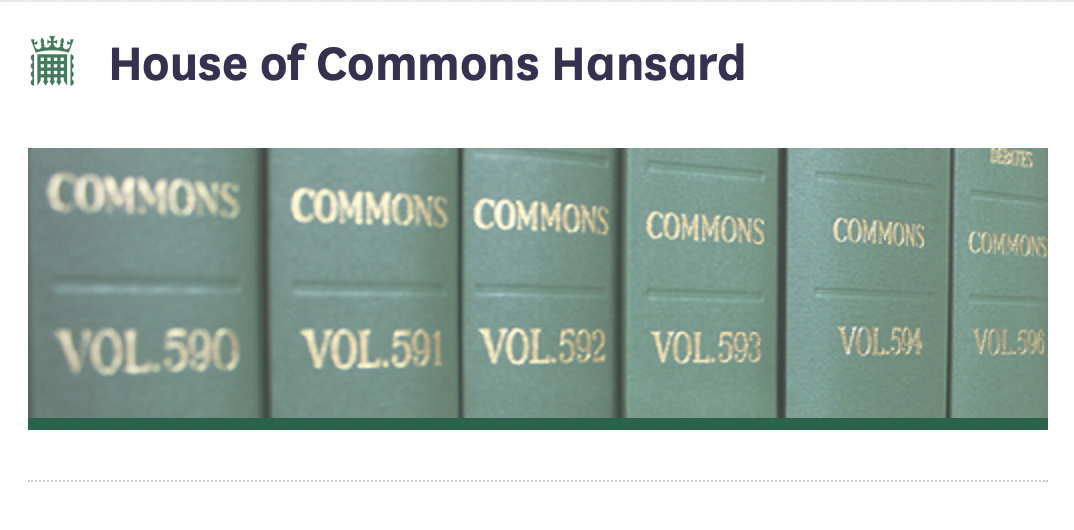John Whittingdale The Minister of State, Department for Culture, Media and Sport, Minister of State (Department for Science, Innovation and Technology) 10:00, 5 December 2023
I thank the hon. Members for Barnsley East and for Aberdeen North for speaking to their amendments and allowing us to debate the importance of the Gaelic language. It is something we spent a little bit of time on at Second Reading, but it is an important issue.
The Government absolutely share the view of the vital necessity of supporting the continuation and future of Gaelic, and recognise the important contribution that the Gaelic media service MG ALBA makes to the lives and wellbeing of Gaelic speakers across Scotland and the rest of the UK. It is for that reason that the Government embedded a duty to support regional and minority languages, although I take the point made by the hon. Member for Arfon about Welsh not being a “regional” language in that sense. It is, nevertheless, a minority language—as is Gaelic. There is a duty within the BBC’s general duties under the current charter arrangements. We want to help ensure that audiences are able to access this culturally important minority language content in the decades to come.
The Bill goes further than existing provisions. Clause 1 makes the importance of programmes broadcast in the UK’s indigenous languages, including the Gaelic language, clear in legislation, by including it in our new public service remit for television. That is a new addition, which puts on the face of the legislation the need to continue to support minority languages of this kind. We will debate later the way in which the public service broadcasters are required to contribute to the remit and are held accountable for doing so. The purpose of clause 1 is to place a requirement on Ofcom to consider how the public service remit has been fulfilled. It sets a high-level mission statement for public service broadcasters, and is underpinned by a more detailed system of quotas in later clauses. It is intended to be simpler and to provide PSBs with greater flexibility.
That point notwithstanding, I reassure the hon. Member for Barnsley East that the availability of Gaelic language content is provided for elsewhere. As she knows, the BBC has a specific responsibility in the framework to make arrangement to provide BBC Alba, which is a mixed-genre television channel for Gaelic speakers and those interested in the Gaelic language. Ofcom also places a number of more detailed responsibilities on BBC Alba in the BBC’s operating licence. For example, it must provide music of particular relevance to audiences in Scotland, live news programmes each weekday evening—including during peak viewing time—and a longer news review at the weekends.
It is for Ofcom to determine whether these requirements remain appropriate, including on the basis of feedback. It is the case, however, in terms of the amount of Gaelic language broadcasting that takes place, that at the moment BBC Alba broadcasts in Gaelic from 5 pm until midnight. That is seven hours each day, starting an hour later at weekends. When not broadcasting television programmes in Gaelic, it plays—forgive me if I pronounce this wrong—BBC Radio nan Gàidheal, which is the Gaelic language radio station. That is broadcast with static graphics during the periods when television programmes are not being aired. That means that there is a total of something like 2,579 hours of Gaelic television content, certainly in the course of last year.
I think that the amount of Gaelic language already being broadcast meets the ambition set out in the amendment from the hon. Member for Aberdeen North, and it is now contained in the public service remit, serving all channels, and the BBC charter agreement. For that reason, I think there is already considerable provision to ensure the continuation of Gaelic language.
I want to turn to the issue raised by the hon. Member for Barnsley East in new clause 5, which refers specifically to the manner in which Gaelic is delivered. BBC Alba is a requirement as part of the charter, and we will again consider how it is delivered by the BBC when the charter renewal takes place. The charter review starts in 2025 and has to be completed by 2027, and we will set out further details in due course on precisely how it is to be carried out.
In the more immediate term, we have recently brought together BBC and Scottish Government officials to discuss the co-ordination of funding decisions for Gaelic language broadcasting between the two organisations. In that respect, I hope that the hon. Member for Aberdeen North and the hon. Member for Barnsley East will recognise that the intention behind their amendment and new clause is already delivered by the Bill and on that basis will be willing to withdraw their amendments.
TO READ THE WHOLE DEBATE GO TO THIS WEB ADDRESS: https://www.theyworkforyou.com/pbc/2023-24/Media_Bill/01-0_2023-12-05a.6.3?s=speaker%3A10632#g15.0
